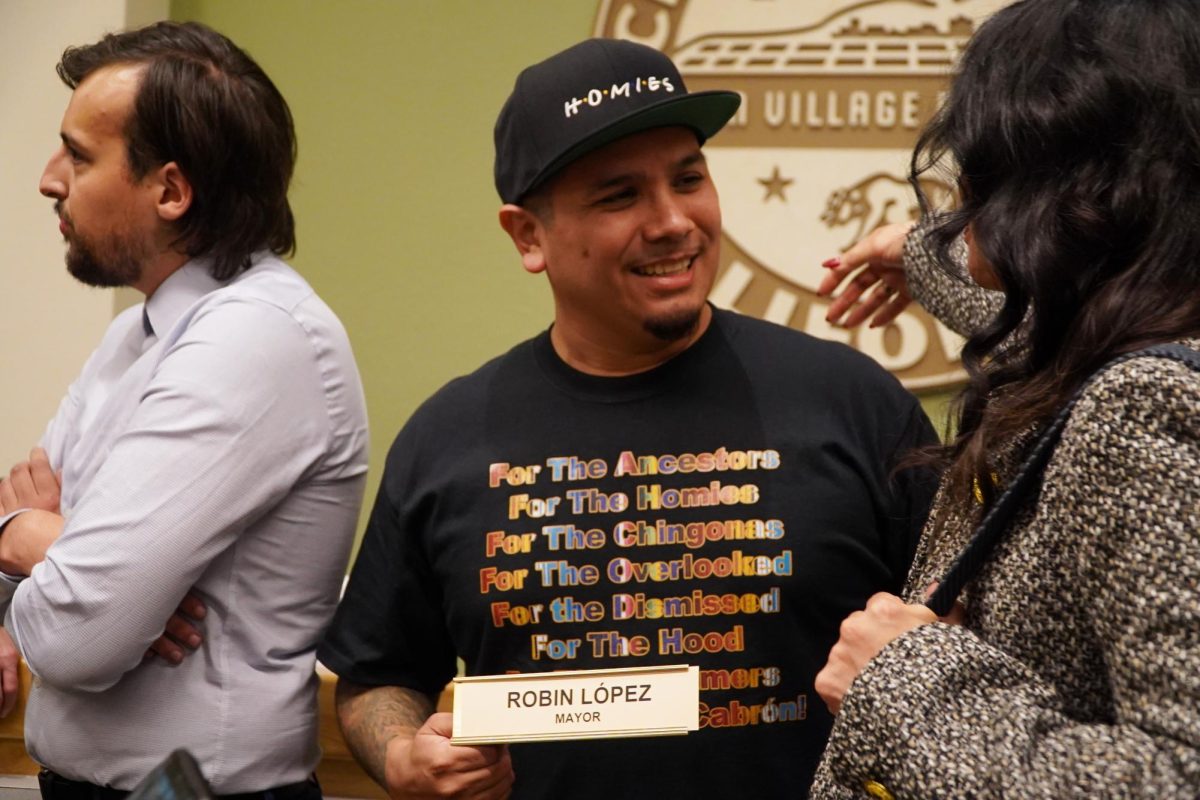On Nov. 4, Steve Foster was handcuffed at the Pleasant Hill/Contra Costa Centre Bay Area Rapid Transit Station by police officer David McCormick after eating a sandwich on the station platform. Foster was not arrested, according to a statement BART made on their Twitter.
A video of the incident went viral on Twitter, Facebook and Instagram. In the comments, people were sharing their stories of eating on BART. One commenter said, “people like myself eat at the platform and sometimes on BART because that’s the only time we have.”
Safety should be BART’s priority, not detaining people for eating food. BART says that it carries about on average 432,000 people on a weekday — it is a huge form of transportation.

My classes are back-to-back Monday through Thursday from 9:30 a.m. to 3:15 p.m. and I head straight to work as soon as my classes are over. Sometimes, the only time I have to eat my breakfast or lunch is during my commute going to school or to work.
For the amount of times I ate on BART, I was never cited or told to stop eating.
After the incident, District 8 BART Director Janice Li and Kelly Groth, policy advisor for the nonprofit organization NextGen organized an “eat-in” at the Embarcadero Station in San Francisco on Nov. 9. More than 30 people showed up to the station with breakfast sandwiches, snacks and pastries.
“The response from BART riders on social media was supportive, with riders sharing their stories of eating on BART and not being harassed, while also calling out their privilege of being white or fair skinned,” said Kelly Groth, policy advisor for the nonprofit NextGen.
There was no direct response from BART police during the eat-in but BART general manager, Bob Powers, issued an apology on Nov. 11 stating that he was disappointed in how the situation unfolded. Powers also apologized to Foster, BART riders, employees and others who have had an emotional reaction to the video.
“My friends and I were discussing the video incident and mentioned the various times we’ve eaten or had a beverage on BART and not been harassed, let alone the fact that eating on BART shouldn’t be an offense in the first place” Groth said.
There are more than a handful of times where I’ve been on BART and have seen someone smoking, stealing and being harrassed — those people were not arrested or stopped by police. However, I have never seen a situation like Steve Foster’s.
The BART Police Department TriTech issued data from their computer database on June 2019 that showed there have been 251 violent crimes that happened on BART that include rape, robbery and assault. The database also said there were 1,620 instances of property crime, including burglary and larceny.
“I don’t feel safe on BART,” SF State biology major Amanda Verzosa said. “Men have approached me asking for sexual favors, making me feel uncomfortable and freaked out.”
BART’s mission statement says that they want to, “provide safe, reliable, clean, quality transit service for riders.” Twenty-three percent of people started using BART less because of crime concerns, according to a BART survey released on Jan. 24.
The Alameda County Grand Jury reported that violent crimes on BART have increased by 115%, from 226 violent crimes in 2014 to 485 violent crimes in 2018. Violence and the safety of BART should always be a top priority.
“The BART officer detains a passenger who was simply eating a sandwich, and calls for three officers to back him up. The officer who initially detained the passenger should have only reminded him of the rule to not eat on the platform, then de-escalated the situation and left the platform when the passenger confronted him,” Groth said.
BART police officers should address violent crimes on BART rather than someone eating a sandwich. I witnessed so much danger and crime on BART that someone eating should be the last priority. There are plenty of people on BART who eat on the platform or the trains and do not get treated as poorly as Steve Foster was treated.









